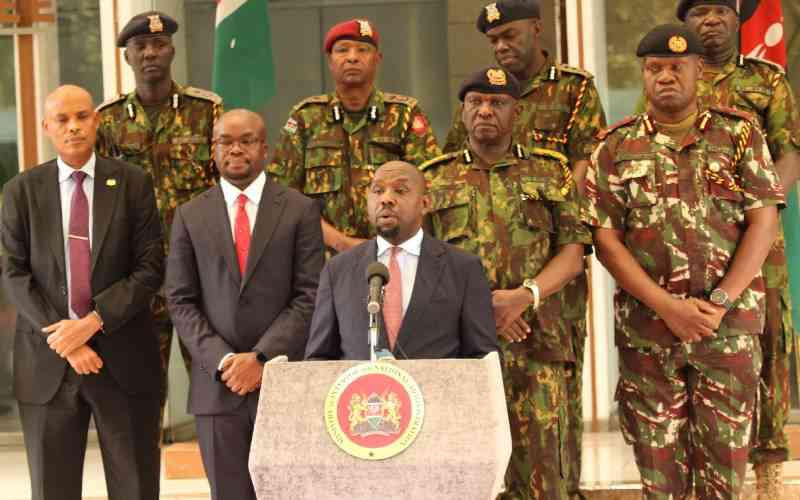Experts urge developers to advance climate-resilient, energy-efficient buildings
Built environment experts have called on property developers to embrace a circular economy, and design climate-resilient and energy-efficient buildings, which will ensure sustainability and reduce environmental degradation.
Chairman of the Lagos Building Investment Company (LBIC), Hakeem Ogunniran, made this call at the African Environmental, Social and Governance (ESG) Conference and Exhibition held in Lagos with the theme; “Sustainable Real Estate Value Chain: The Era of Green Initiative in Africa.”
The event, organised by the Real Estate Developers Association of Nigeria (REDAN), Mortgage Banking Association of Nigeria (MBAN) and Nigeria-UK Real Estate Society served as a transformational platform, brought together policymakers, industry leaders, investors, academia, and civil society to drive collaboration, policy reform, and sustainable investment in Nigeria’s built environment.
In his presentation titled “Issues and Prospects of the Green Agenda in Real Estate Development in Nigeria,” Ogunniran emphasised the urgent need to redesign real estate development processes to extend the lifecycle of building materials.
“You’re not just thinking build, use, demolish, and dump, you are thinking of how to keep materials in the loop, reusing, regenerating, and recycling them. Real estate currently follows a linear model — make, use, dispose. This contributes massively to environmental harm,” Ogunniran said.
Highlighting the role of the built environment in climate change, Ogunniran stated that nearly 42 per cent of global carbon emissions come from the real estate sector, 27.3 per cent from building operations, 7.1 per cent from construction, and 7.3 per cent from infrastructure development.
“Climate change is no longer a peripheral issue. It is central to the survival of cities like Lagos, which are already dealing with flooding, sea level rise, and infrastructure collapse,” he said.
He further urged architects and designers to incorporate green principles into building design regardless of client specifications. “Even if the developer’s brief does not include sustainability, architects must infuse green strategies, like better air circulation, material reuse, and orientation,” Ogunniran said.
He acknowledged the high costs of sustainable development, sometimes up to 15 per cent and more than traditional methods, adding that the long-term benefits and reduced maintenance costs outweigh initial investments. “We must begin to educate stakeholders on the value of investing in sustainable systems like alternative power sources,” he added.
In his remarks, the Lagos State Commissioner for Housing, Hon. Moruf Akinderu Fatai, described the conference theme as timely and relevant in the face of Africa’s escalating environmental challenges.
The commissioner, who was represented by Mrs Olufunke Fosudo, stated that the government has been exploring opportunities such as increased adoption of renewable energy sources, eco-friendly building practices, sustainable urban planning and infrastructure, growing awareness of climate change and advancement in green technologies.
He disclosed that the Babajide Sanwo-Olu administration has set new benchmarks for sustainable real estate in Africa’s green future and urged the participants to embrace partnership as an option for the growth and development of Africa. “We may serve in different institutions, but we share a common goal, which is to make Africa better. This becomes imperative as our continent is undergoing a challenge that needs our collective efforts towards the path of economic and environmental recovery.”
He acknowledged the fact that the real estate sector has played a pivotal role in the development of the continent and intervened in the forefront of the provision of a renewable environment for citizens.
His words: “To sufficiently demonstrate our desire to confront climate change, one of the earliest tasks of this government was to continue to sponsor the Lagos International Climate Change Summit. The objective of this summit is to address environmental issues and fashion out ways for an eco-friendly society. With this vital collaboration, we are hopeful that other cities in Africa can borrow a leaf from the Lagos Modest City Plan and translate the same in their respective domains to promote an eco-friendly environment to the greater benefit of humanity.”
The Commissioner reiterated that the present administration guarantees every Lagosian maximum benefit of the dividends of democracy.The REDAN President, Prince Akintoye Adeoye, said that rising temperatures, erratic rainfall, and desertification are affecting communities and threatening the housing sector’s resilience. “Developers must take responsibility for designing climate-resilient and energy-efficient buildings. ESG is not just a global trend; it’s a call to action for Africa,” he said.
REDAN underscored the importance of embedding ESG principles throughout the real estate value chain from design to occupancy to ensure ethical, inclusive, and climate-conscious development.
Echoing these sentiments, the president of MBAN, Ayo Olowookere, said the programme marks a significant milestone in the journey toward ESG integration in Africa’s real estate and financial sectors.
“This platform enables us to learn from global best practices and forge strategic partnerships for a sustainable future,” Olowookere said, reaffirming the institution’s commitment to advancing ESG within the mortgage banking sector.








